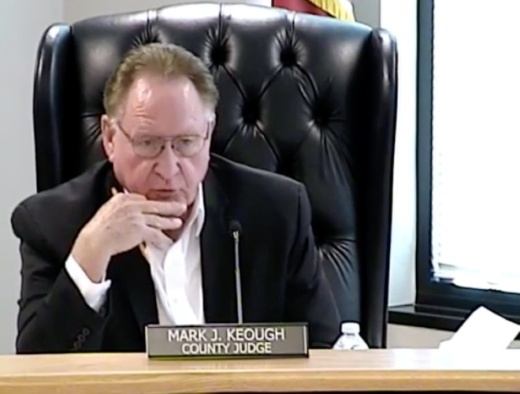The Commissioners Court had agreed at its Oct. 27 meeting to authorize the Montgomery County Office of Emergency Management to facilitate reimbursement agreements for the districts at the rate of $40 per student, or a total of about $4.4 million.
Precinct 3 Commissioner James Noack proposed an additional $200 per student at the meeting, and after a brief discussion, the amount was increased.
“It’s important to this court that we use this money in a way that it was intended and that it provides the most benefit, and there’s no better place to put it ... than back into schools and our kids and to the future of Montgomery County, so I would like to at least start with the idea of adding $200 to what we’ve already given," Noack said at the meeting.
The amount was subsequently increased to $260 per student, or $29.58 million total in additional CARES Act funds.
"Schools are going to have a bigger struggle than they’re having now. I just see that coming. ... I would like to suggest we at least go $260 per head to make it an even $300," Precinct 2 Commissioner Charlie Riley said.
County Auditor Rakesh Pandey said the October audit is still underway, but after certain other expenses are accounted for, about $40 million of CARES Act funds remain before the amount to schools is dispersed. The county received about $105 million in CARES Act funds, officials have previously said.
"If we do this $29 [million] today, the amount left is about $10 million," Pandey said.
Among other expenses approved Nov. 17, commissioners also authorized the purchase of $1.49 million in medical supplies, such as syringes to distribute and administer vaccines for COVID-19 when they become available.
The supplies will be stored in county warehouse space also purchased through CARES funds, said Jason Millsaps, chief of staff for County Judge Mark Keough.
Other CARES fund uses the commissioners have authorized this year include $22.5 million in public safety expenses approved Nov. 10. The county had previously dialed back a proposal to provide $500 stimulus checks to residents with CARES funding, citing concerns that those funds would not be reimbursed because that use was not approved by the U.S. Treasury. That program would have cost $65 million.





